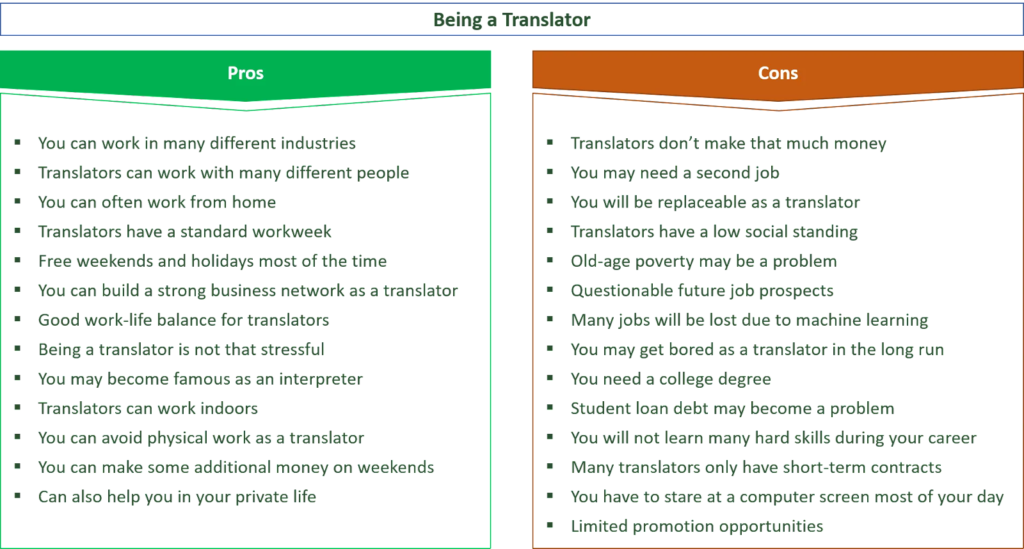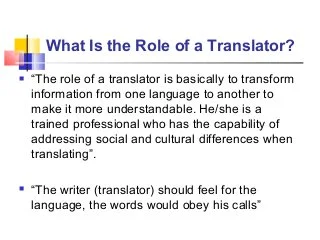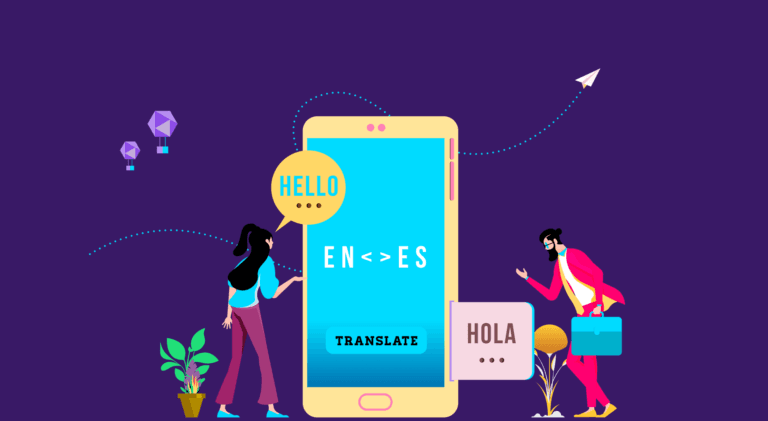
Table of Contents
- Who is a Translator?
- Perks of Being a Translator
- 5 Steps on How to Become a Professional Translator
Does your hello turn into “Ciao” and goodbye turn into “Adios?” Do foreign languages fascinate you to the point that all your minors are language courses? If yes, then becoming a translator might just be the right career choice for you.
Ever since globalization boomed, the language barrier emerged as a significant concern for businesses, people, and governments alike. Then came a plethora of translation apps, guidebooks, language learning apps, etc. But no algorithm can beat the human element in language, which only comes from a translator.

That’s why the career field is still booming, with new avenues and positions opening up every day. If language is where your heart lies, it’s time to begin your journey of becoming a translator. And this article is the right first step!
Who is a Translator?
A translator’s primary work is translating written text from a foreign language (also called a source language) into their native or mother tongue. It is often confused with interpretation, which usually refers to the verbal conversion of one language into another.

Different industries require translators to enhance communication with customers, partners, and key stakeholders.
- Multinational companies with a globally spanning business require translation services regularly.
- Governments also use translators for official policies, communication with other countries, and other essential exchanges.
- The publishing industry also demands translators for books, journals, guides, and other written texts.

Translators can choose to work independently as freelancers or as associates with an agency. Many online websites offer translation work to freelancers. If you don’t want to go through the uncertainty of finding clients, it’s better to look for a permanent job. While with less flexibility and pay, it offers more stability, and you can focus on honing your skills.]
The key responsibilities of a translator are,
- Researching to accurately translate contextual material, colloquial terms, jargon, and regional references to their native language.
- Maintaining the original tone, style, context, meaning, and voice of the author.
- Editing for errors in the translated text.

Perks of Being a Translator
There are several perks of becoming a translator.
- You can easily choose to work independently and control your income source. Since it’s an expanding field and supply is limited, you will easily grow in your career.
- It has the potential to land you some high-ticket clients.
- You will be able to network in the industry and get great opportunities.
- There’s also a lot of room for learning in the field. As you constantly deal with a new piece of text every time, you also get a lot of takeaways from work.
- The pay for translators is also lucrative if you develop good skills.

5 Steps on How to Become a Professional Translator
Here’s a step-by-step guide on how to become a translator.

1. Learn and get certified
The first step to becoming a translator is learning. Many languages require translation work. It’s best to choose a language that’s not too common in usage. This way, you will avoid competition and also get good gigs.
Once you’ve decided on a language, find a good source of learning. This can be a university degree in translation, an online course, apprenticeship, or other sources. Many reputed universities offer courses in translation, like the University of New South Wales, Copenhagen Business School, Seoul University of Foreign Studies, etc. A degree or certification course will also add credibility to your profile and land you better clients.
2. Freelancing or a job
The next crucial thing to decide before becoming a translator is how you would like to work. This is one career where you can easily start an independent service business. But that will require you to dedicate more time to find clients. You will also need to take care of your finances, sales, and other business processes.

On the other hand, a translator job comes with security and employee perks. But it may limit your exposure to translation gigs, and opportunities to make money would also be less. You must decide based on your working style, comfort, time, etc. Many translators prefer to take up a job in the initial phase of their career. Once they gain some experience, they go solo.
3. Get experience and develop your skills.
Since translation is a skill-based job, you cannot grow in the field without gaining experience. After your formal education, try finding an internship or apprenticeship opportunity in translation.
You can also register on freelancing sites like Upwork to find your first set of clients. You should aim to get exposure in different industries to have an all-rounder profile. If you can’t find paid translation gigs, you can also build your own portfolio by doing sample tasks.
This will help you showcase your skills and expertise in the language to potential clients. As you gain more experience, you can increase your rates, be picky about the projects you take and get better clients.
4. Start networking
Now it’s time to put yourself out there and mingle with your industry. To become a translator, you have to be able to find the right opportunities at the right time.
- Join professional groups of language enthusiasts around you.
- Do cold outreach to government departments, local businesses, publishing companies, and agents.
- Make sure you have your portfolio, resume, and rate card ready.
- Since these things are representative of your work, you can seek the help of a professional to develop these assets.
- Finally, interact frequently with other experienced translators in the industry. They will give you many insights into becoming a translator and growing in this field.
5. Keep improving yourself
Once you start getting translating gigs, you can decide on niching down in the field. You can select a few industries or topics to specialize in. Make sure you are updated with the latest trends and lingos in that industry. Keep learning through courses, workshops, and industry connect sessions to hone your skills in the source language. Language is ever-evolving, so you’ll need to be constantly learning to succeed in the field.
Scope of Being a Professional Translator
There’s a lot of scope for growth in your career as a translator. You can start by working with reputed government and private agencies to gain experience. Once you have a good network, you can also start your own translation service firm.
Alternatively, you can become a thought leader in the industry and impart your learnings to other newbies in the field.
In Summary
That’s a wrap on how to become a professional translator. With the proper guidance, you can make a great start in the field. There’s a lot of room for growth in this industry for people with good skills. But you will need to be on par with your competition and keep learning continuously.
Key Takeaways
- Translators express text written in a foreign language to their native language. Unlike verbal interpretation, it uses the written mode of communication.
- To become a translator, you need first to get a good hold of the source language. You can get certified or take a degree in the language for credibility.
- Next, you decided whether you would work independently or take up a job. It should be based on the time you can commit, your earning expectations, and comfort. Begin by first gaining experience in the field and developing your skills.
- You can expand your clientele by networking with other industry professionals. Expose yourself to government agencies and businesses to get your next big gig.
- Finally, the best tip for becoming a translator is continuous learning. Strengthen your understanding of the source language by taking new courses, reading books, consuming media content, etc.
FAQs
A degree in translation from an accredited university or a professional certification should suffice. You can first get a bachelor’s and then go for a master’s to add to your experience.
Start by gaining experience through internships or campus projects. Then pitch to government departments and businesses who might need your services.
Practice is the only thing that will help you become a competent translator. Also, keep your updated with the latest terms used in the source language.
On average, translators make $50,000-$60,000 a year. It can also depend on the industry you work in and your experience.
All you need is expertise in the source language and good writing skills.
Latest Blogs
Learn how to rank on AI search engines like ChatGPT, Perplexity, and Gemini by optimizing your content for authority, structure, and relevance. Stay ahead in AI-driven search with this strategic guide.
Explore the best healthcare SEO services for your medical practice. Improve online visibility and effectively reach more patients in need of your services.
Discover top social media agencies specializing in banking solutions, enhancing financial services and driving engagement.
Get your hands on the latest news!
Similar Posts

Translation
5 mins read
All You Need to Know About Language Translation and Terminology Management

Translation
5 mins read
6 Reasons to Translate Content into German

Translation
5 mins read